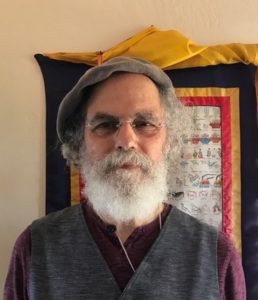The classics are helpful not just because they contain pointers to how medicine works. They are helpful because of the discussions they have generated amongst practitioners over the twin distances of time and space. They are a kind of thread that connects us with the doctors of the past who have gone to this well for the wisdom within.
Listen in to this conversation on the pulse as seen through the perspective of the Classic of Difficulties, how the principle of 理 (coherence) shows up in the work we do, issues of free will and that troublesome question of what constitutes a cure.
In This Conversation We Discuss:
- Z’ev’s taste for self-study
- The influence of Paul Unshuld’s Nan Jing
- Studying Chinese medicine and studying Talmud are not that different
- Considering Li 理, principle, law, coherence
- Cultivating our own north star sense of rootedness
- Attending to the warp of time and structure when seeing patients
- How to read the classics and interact with them in a way that helps us in clinic
- Issues of free will
- What is a cure?
- How a practitioner’s state of being influences a treatment
- The Nan Jing gives us a clear picture of how pulse reflects a patient’s situation
- Pulses without names that tell us something
- How to make the most of Z’ev’s new book
I always, with a new patient (and present ones as well) carefully read the pulse, look at tongue, complexion, body shape and type, voice, and smell. Sometimes I’ll palpate the channels or abdomen. In other words, the traditional diagnostics covered in the Nan Jing. Then, I’ll ask questions based on my findings. Then, finally, I will ask the patient what is going on with their health. This allows me to get a more unbiased, complete view of my patient’s condition, and allows both of us to reframe this in terms of a fresh, new approach to the problem.
 Z’ev Rosenberg, L.Ac
Z’ev Rosenberg, L.Ac
As a teenager, if anyone asked me what I wanted to be, it was ‘a wizard, like Gandalf’, or ‘an alchemist’. I was obsessed with the ‘Sorcerer’s Apprentice” classical piece and Fantasia clip as a kid, and my hero was Leonardo Da Vinci. My love of nature led to study of the Yi Jing in my teens, macrobiotics, shiatsu and finally Chinese medicine in the 1970’s. I’m still figuring out the alchemy of human life and health every day in my studies, clinical practice, and observations of human beings, resonant plants, animals, birds, lunar and solar cycles, prayer, meditation and the pursuit of learning….
